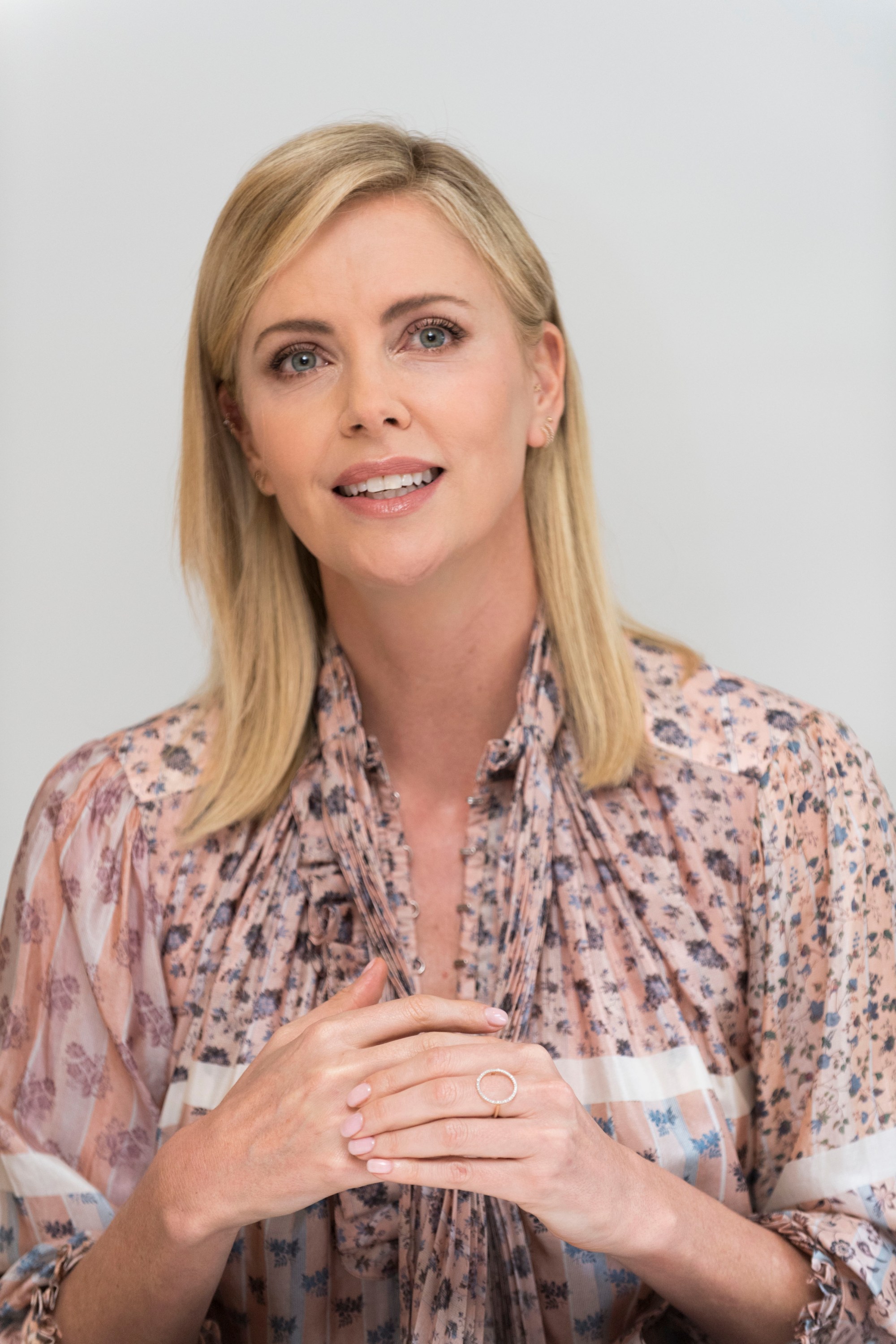
- Interviews
HFPA in Conversation: Charlize Theron, Always a Storyteller
When Charlize Theron was a little girl in Benoni, South Africa, her first-year school teacher asked her and her classmates to dress up what they wanted to be when they grow up. In this conversation with HFPA journalist (and fellow South African) Margaret Gardiner, at the HFPA offices in West Hollywood, Theron recalls: “I remember going all over the house trying to find an outfit and props. But I didn’t know what I wanted to be and now looking back I realize what I was looking for was just the best outfit and the best props I could sell, whatever it was. Which means that maybe back then I was even more of an actor than I knew because I ended up going with swimming goggles, the big ones, the diving ones, and the snorkel but I made a stethoscope out of it.”
She said she was going to be a doctor even though she had no desire to be a doctor. “I think for me even early on back then it was about performance and I just didn’t really know what to call it or what to say the name of that was. So for me, I thought it was ballet because that was the thing that I was doing and was dedicated to. I think it took me until I was much older to really break down what it was that I really liked about it, and it was performing and telling stories and losing yourself completely in something else. I think that’s what I’ve always wanted to do.”
She needed to overcome the fact that she was missing teeth. “I wasn’t particularly gorgeous when I was a kid. I had no teeth, which was a huge insecurity for me. I had jaundice as a baby and the antibiotics really rotted my teeth so when my teeth came out they had to pull them so for most of my early school years up until I was 10 or 11 I didn’t have any teeth.”
When Theron got a modeling contract in Europe at age 16, she was surprised. “I never grew up really thinking that I was anything extraordinary in that sense. My mom always had this kind of behavior towards me that was, sing a song or…it was always about my actions versus what I looked like.”
The experience made her independent. “I’m super grateful for that. I could travel and I could pay my own rent and I could look after myself and I was really proud of that, that at 16 I was taking care of myself.”
She moved to New York and attended Julliard to become a dancer. But when she injured herself she thought her life was over. “My mom sat me down and say this is the moment in your life where you either give up or you find that thing. And she had always said to me, find a job that doesn’t feel like a job; find the thing that you love.” At 3 a.m., after two pints of Haagen-Dazs ice cream and a New York pizza, her mom looked at her and said: “You love telling stories, you should do that. I’m very grateful for her naiveté that she thought I could go and try movies. Now when I think back in retrospect I’m just…you were so stupid. We knew nothing about the industry. We knew that they made movies in Hollywood, that’s all we knew. I knew nothing about the skillset that it took or the discipline or just even the logistics of it. It was like; you just go over there and try it out.”
Her breakout year was 1997 with two movies, The Cider House Rules and Devil’s Advocate. In 2003 she won an Oscar and a Golden Globe for her performance as a serial killer in Monster. Her most recent film, Tully, is the creation of the same team from Young Adult, director Jason Reitman and screenwriter Diablo Cody. “I think both experiences, Young Adult and Tully, for me were opportunities to do something that I don’t think a lot of people in our industry thought I was maybe capable of. They are tonally very specific, dealing with real, grounded, anchored, dark topics but in a way that tonally makes you feel like you’re watching something almost so intimately but also from afar where it’s comfortable enough to laugh. That humor comes from all of that ugly darkness.”
Listen to the podcast to hear how her father’s death affected her relationship with her mother; how she tried to prove to people that she had teeth in her school photos; why she thinks she was stupid at the beginning of her career in Hollywood; what kind of advice Michael Caine gave her; why she turned down Monster a couple of times; why she became a producer; why all of her characters have been flawed; why she tries to control her language; how was it gaining a lot of weight for Tully and how it affected her mindset; what she thinks about motherhood; why she took a role in an upcoming movie about Roger Ailes; ; why she likes Tom Petty; how the HIV and AIDS epidemic affected her childhood and why it is important for her to work towards HIV and AIDS prevention in South Africa.
Listen to the conversation here or, for immediate access to all of our podcasts, subscribe to HFPA in Conversation on iTunes.

